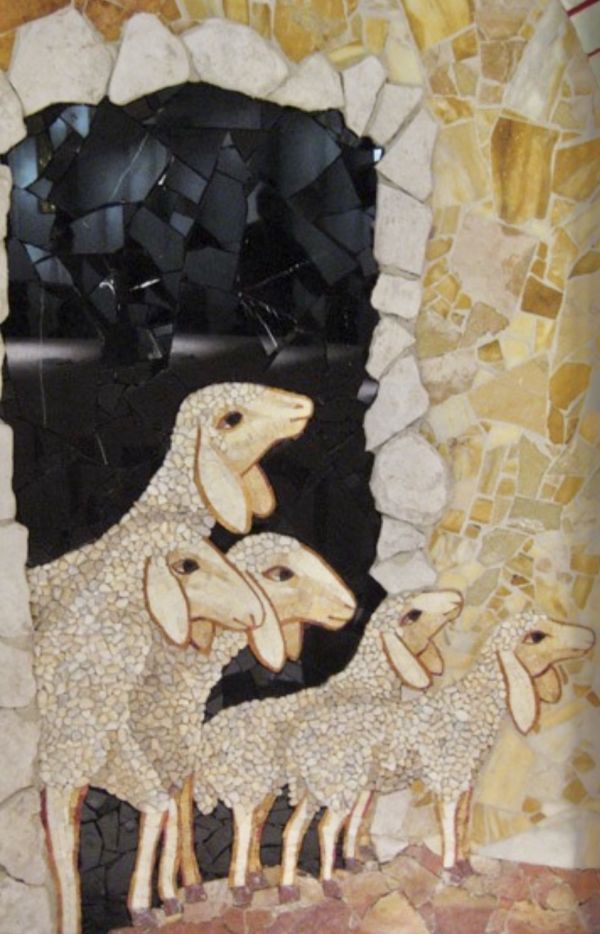«I Am the Gate of the sheep»
(Jn 10:1-10)
In the pastures, during the night the sheep were sheltered in stone enclosures on a slope and the shepherds (taking turns) placed themselves in defense of the flock by curling in the position of the door (below) armed with a stick, as if they were a door, impassable for thieves and predators.
Life’s assiduity allowed the flock - even of different owners - to recognize the typical call and the voice of the corresponding shepherd. Not infrequently did he designate each one by an individual nickname [unrepeatable according to character].
In Jerusalem the great city Gates were opened in the morning and closed at sunset. They were fundamental points of urban social life, obligatory passages to enter and exit the walls.
After decades of deportation, the end of the Babylonian empire and the edict of Cyrus, the Sheep Gate was the first to be restored and the only one consecrated, because through it flocked the herds to be sacrificed to the Temple.
Jesus takes a stand and explicitly denounces the abandonment’ situation of the true ‘flock’ [the people] sacrificed to the interest and logic of the institution which is not interested in people's happiness but only in the defense of privileges.
He is the Shepherd who walks ahead (v.4); doesn’t hide behind the scenes: he takes risks personally. The Lord doesn’t come to take, but to give in abundance. Because God is looking for his people in shortage.
His is a Call by Name (v.3): He respects personal identity, doesn’t impose abstract or unsustainable rhythms, doesn’t force the times; He assesses the conditions of each.
For the authentic Shepherd there are no anonymous crowds.
Therefore He does not close us within the ancient sacred ‘enclosures’ (v.1 Greek text) where mass obsessions lurk. Fences equipped with guardian and gendarmes, where all are uniform - and the sensitive soul no longer breathes, kidnapped by opportunists (v.8).
From His Gate we can go out (vv.3-9). Indeed, it’s He who forces us to overcome it (v.3 Greek text).
The authentic Guide leads to a different richness, more substantial pastures, unexpected amazements.
The true Shepherd obliges to make Exodus, pushing us [with force] out of the restricted sheepfolds.
The guide’s authoritativeness is confirmed both by the direct knowledge of the «guardian-gatekeeper» (v.3) and by that of the people, who recognize the Word, and follow it - pushed by that Call as by a thrill within.
Christ highlights the authority he has over the people, presenting himself with the non-transitory formula «I Am» [full of eminent and profound resonances].
And actualizing, He specifies this expression with the metaphor of the Gate - not so much to close it, but above all to open it wide and let us pass.
In this way and unlike the old guides, the small flock follows Him not out of fear or calculation, as it would do with an inflexible master, but spontaneously.
Taking into account the presence of obstacles without which we cannot grow, in the even excited journey, we will experience the invisible Friend as a Master of clarity, decision, constancy, flexibility, introspection.
Recognized in the Unknown Face that lurks within each of us, we will be made aware ‘up close’, motivated and free ones - so that we may be rendered to Life.
[Monday 4th wk. in Easter, May 12, 2025]












